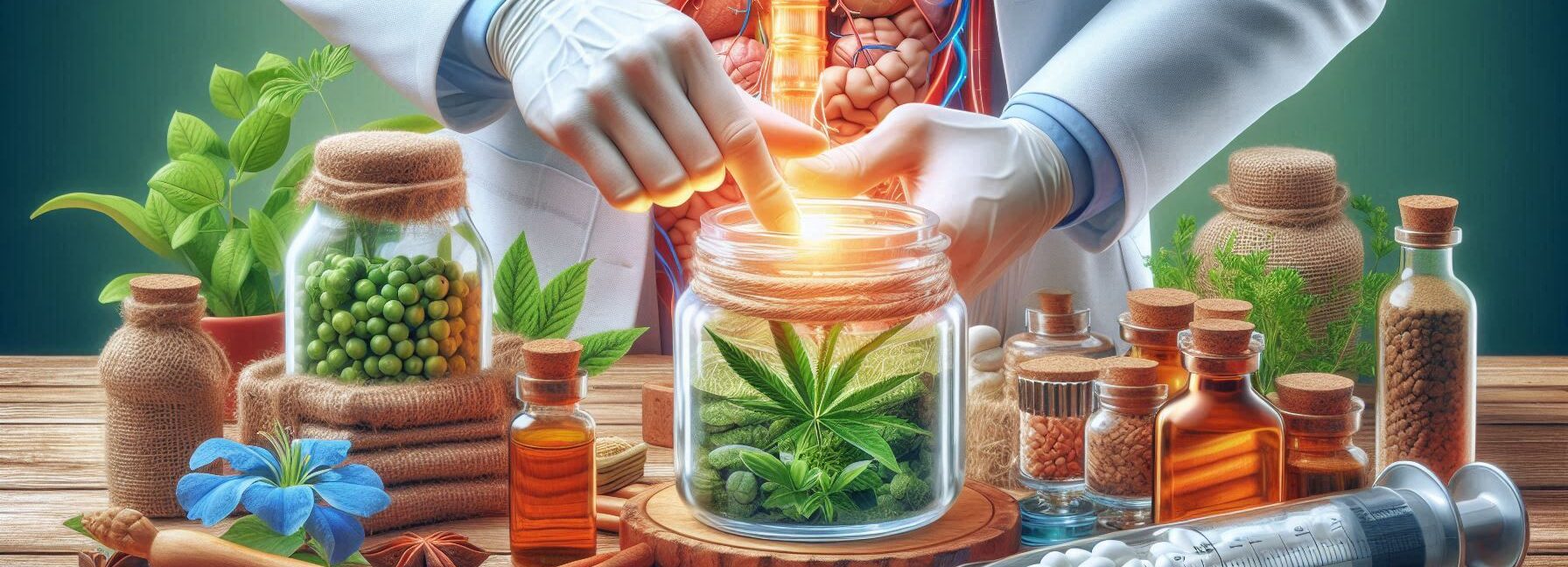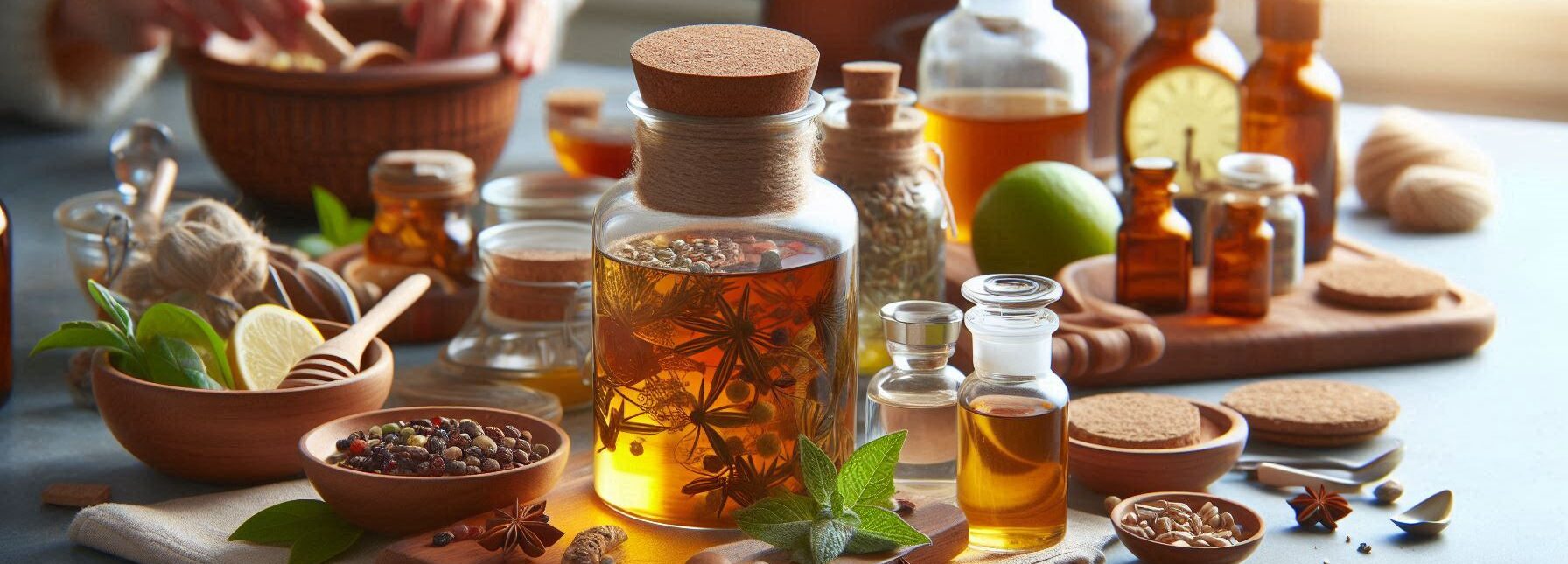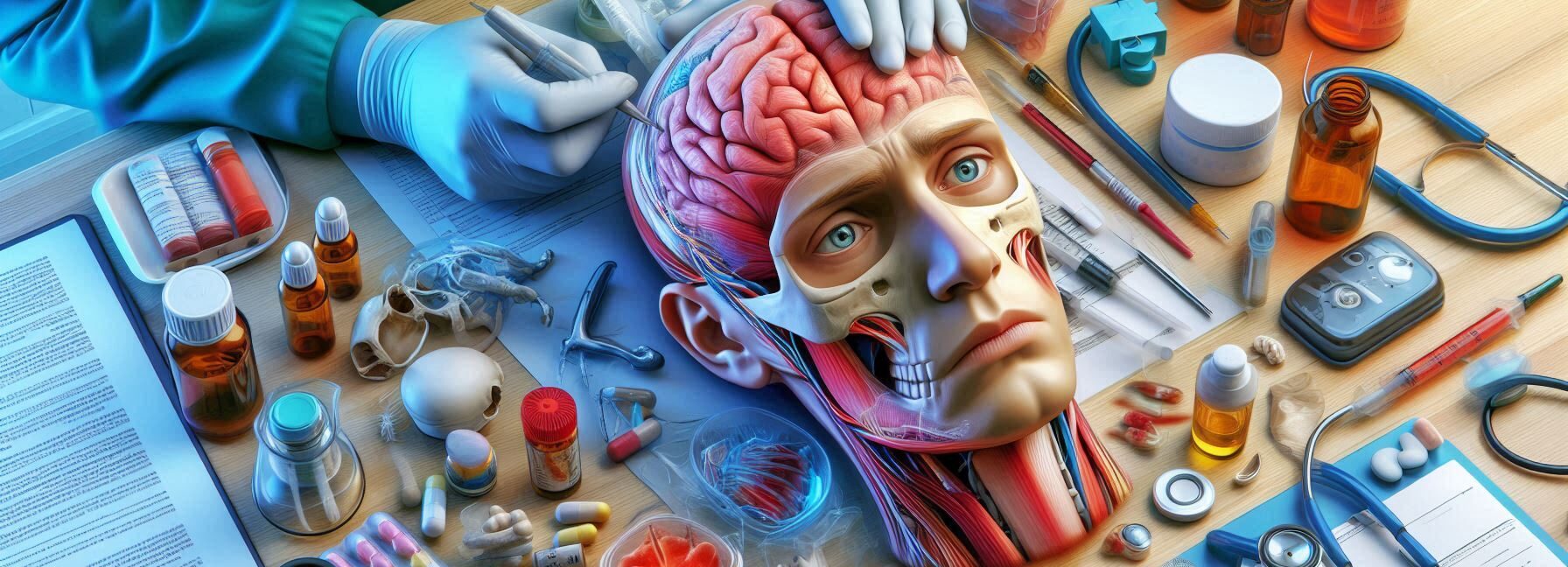Last Updated on November 2, 2025 by Kevin Collier
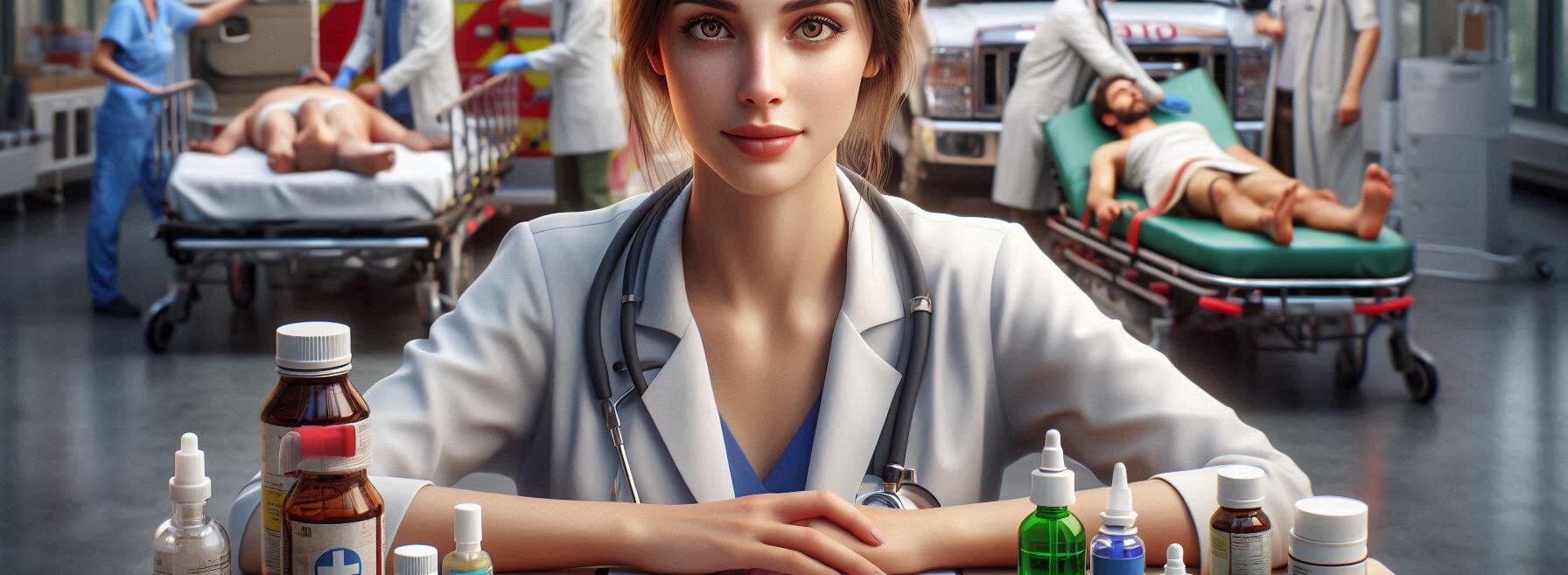
Top Takeaways and Key Concepts
– Stock a first aid kit with bandages, antiseptics, and pain relievers.
– Include prescription medications and keep them inventory checked regularly.
– Add specialized items like splints, tweezers, and burn dressings.
– Maintain hygiene supplies, including gloves, masks, and alcohol wipes.
– Educate yourself on basic medical procedures and first aid techniques.
Life can be full of surprises, right? One minute you’re out hiking, feeling all adventurous, and the next? You trip over a root. Ouch! If your ankle’s mad at you, you definitely want to be ready.
Please Note: This post may contain affiliate links. If you click one of them, we may receive a commission at no extra cost to you. As an Amazon Associate, I earn from qualifying purchases.
Being prepared is like having a secret toolkit. When things go sideways, having some medical supplies can really make a difference. Let’s chat about what cool stuff you should keep handy.
Think about a first-aid kit. You can buy one or make your own. Band-aids are a must. They’re like little superheroes for your cuts and scrapes. You’ll feel brave wearing one. Ice packs help when things swell up. Grab some of those freezer packs, too—they’re easy and oh-so-helpful!
Gauze and tape are great for bigger boo-boos. They keep things clean and protected. It’s like giving your wound a cozy blanket! You can also add antiseptic wipes, which are perfect for cleaning things up.
Don’t forget pain relievers. Tylenol or ibuprofen can really save the day when your head hurts or that ankle feels sore. Just remember to check the labels for what's safe.
Tweezers are handy for splinters. You don’t want a tiny piece of wood ruining your adventure. And a pair of scissors? Totally useful for cutting bandages or tape.
Now, it’s not just about the stuff in your kit. Knowing how to use it is just as important. Maybe watch a few quick videos or read a little. Practicing with a friend can help, too. It’s like a mini medical class!
Being prepared means feeling confident. You’re ready to tackle those unexpected moments—not just the fun ones. So, gear up with your supplies and get ready to be a medical superhero! Capes optional but definitely fun.
*** Shop for Survival Gear - Tools - Kits ***
Survival Gear - Bags and Backpacks - Knives - Boots/Footwear - Communication
Outdoor Cooking - Gloves - Hydration - Dry Boxes - Water Filtration Systems
Tents - Sleeping Bags - First Aid Kits - Multi-Tools - Flashlights - Fire Starters
Navigation - Survival Food - Night Vision - Headlamps - Stun Guns - Binoculars
First Aid Kits: Your Go-To Lifesaver
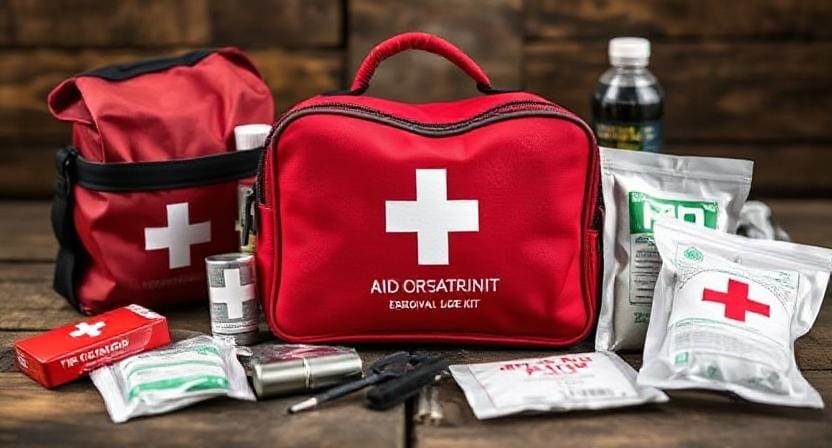
Why don't you have a first aid kit? Think of it as your own safety net, like having a parachute while skydiving, although not as exciting. A good first aid pack should have everything you need for small injuries and emergencies.
Adhesive bandages of different sizes are a good place to start because nothing says “I'm ready” like being able to patch up that little scrape from your epic fall into the bushes. For those times when you want to be brave (or clumsy), add some sterile gauze pads and tape.
Don't forget antiseptic wipes. They're useful for healing wounds and also for cleaning camping gear that you aren't sure about.
Also, think about adding some painkillers like acetaminophen or ibuprofen. You will want something to take the edge off after a long day of getting ready or dealing with Uncle Bob.
Stocking Up on Medications Wisely
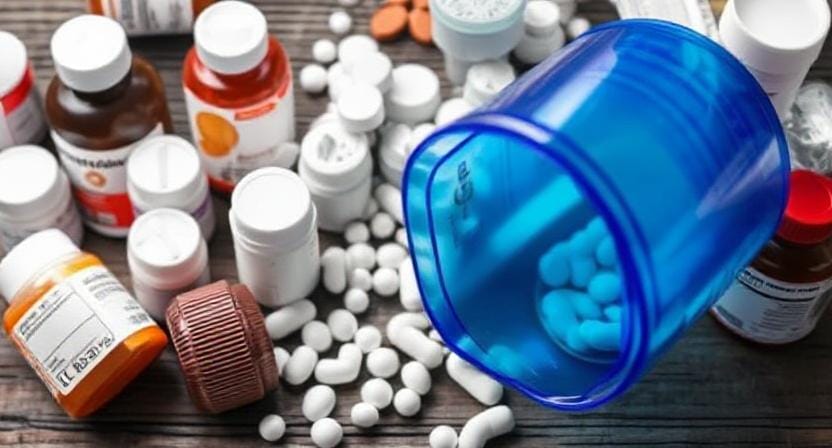
Next up is medicine, because life may throw more than just cuts and bruises at us. If you need to, it's important to have both prescription and over-the-counter medicines on hand. You never know when someone might require an antacid after eating too much freeze-dried chili or when allergies might hit.
When you stock up on medicines, consider about the frequent problems that can come up while you're getting ready. If you have allergies and can't stop sneezing in nature (not very charming), antihistamines are fantastic for you.
You might also want to bring cold medicine because nothing ruins a camping trip faster than coughs and sniffles echoing through the woods.
It's interesting to keep track of when things will expire! No one wants to find out that their emergency stash has turned into a science experiment that has gone bad.
Splints and Bandages: How To Keep Injuries From Getting Worse Like A Pro
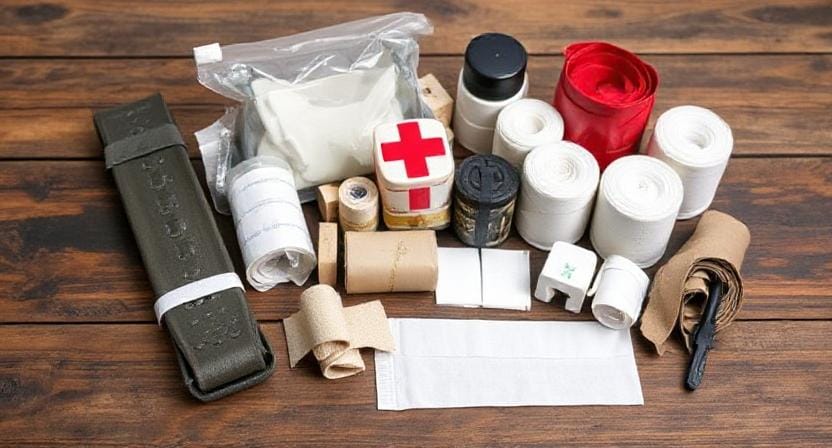
Picture this: you just climbed Mount You go to whatever-it's-called only to find out that your friend's ankle is so badly twisted that it looks like a pretzel. This is where splints come in! They assist keep injuries stable until professional treatment arrives or until you can travel back to civilization without using crutches made of tree branches.
You can buy ready-made splints or make your own with whatever you have around the house. Just don't use bamboo unless you want to seem very extreme. In addition to splints, you should also get some elastic bandages to wrap around injuries tightly but comfortably—think of them as stylish sprain accessories!
And don't forget about triangular bandages! You may use these flexible pieces as slings or dressings, and they might even make your first aid skills look better—who knew healing could be stylish?
Tools for Emergencies: Because Sometimes You Need More Than Band-Aids
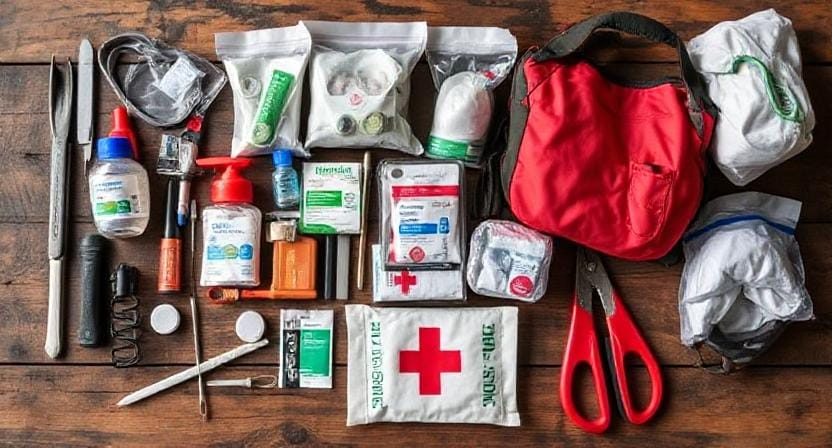
Along with basic medical supplies, think about getting some emergency equipment that are more than just first-aid items. I mean things like scissors (to cut bandages) and tweezers (to get splinters out of those annoying campfire accidents).
A digital thermometer can also be helpful because no one likes to have to guess if they have a fever after getting caught in the rain without the right clothes. And speaking of gear, don't forget your gloves! Nitrile gloves keep you safe and anyone else who needs rapid medical assistance safe as well.
Space blankets may look like shiny aluminum foil, but trust me, they work great at keeping your body heat in on cold nights outside.
Personal Hygiene Supplies: How to Keep Things Clean
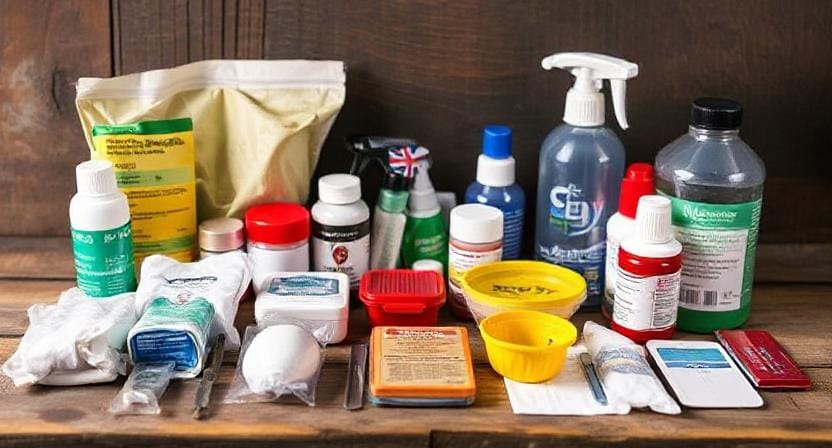
Here's something that people often forget: things for personal hygiene! It's important to stay clean when things go wrong or when camping gets dirty.
You have to have hand sanitizer. Nothing screams “ready” like pulling out some sanitizer before eating trail mix after handling raw chicken while getting ready for camp!
Also think about bringing biodegradable soap or wet wipes. Not only do they keep everyone clean, but they can also boost morale when things become tough (“Look! We smell fresh again!”).
Compared to other things, toothbrushes might not seem like a big deal. But trust me, there's nothing worse than waking up with morning breath after sleeping outside with friends!
Knowledge Is Power: Training Resources
Finally, and maybe most crucially, having all these supplies doesn't mean anything if you don't know how to use them well. You might want to take a CPR or basic first aid training. Many groups in your area offer classes that will teach you how to save lives faster than Uncle Bob can mess up lighting his grill!
Books about wilderness medicine are also great resources. These jewels give you important information that is specialized to outside situations when aid may not be easy to find.
Speaking of that, we shouldn't forget about internet resources also! There are a lot of websites that are all about survival skills, and professionals provide techniques that could save lives, including yours!
Frequently Asked Questions
What should a basic first aid kit include?
A basic first aid kit should include bandages, antiseptic wipes, gauze, tape, and pain relievers to handle common minor injuries and discomfort.
Why are prescription medications important for preppers?
Prescription medications ensure ongoing treatment for existing health conditions and must be checked and rotated regularly to prevent expiration.
When should splints or support wraps be used?
Splints and support wraps are useful when stabilizing sprains, fractures, or injured joints until proper medical care is available.
Why are tools like tweezers and scissors necessary in a medical kit?
Tools such as tweezers help remove debris like splinters, while scissors assist in cutting bandages and tape during wound care.
What hygiene supplies should be included in emergency medical gear?
Gloves, masks, and alcohol wipes help maintain cleanliness and reduce risk of infection during treatment.
How often should medical supplies be checked?
Medical supplies should be reviewed routinely to replace expired medications and worn-out or contaminated items.
Is it important to learn basic first aid skills?
Yes, understanding basic first aid techniques allows you to use supplies correctly and handle emergencies more confidently and effectively.
Suggested Resources:
Basic First Aid Tips
https://www.redcross.org/get-help/how-to-prepare-for-emergencies.html
Wilderness Medicine Guide
https://www.wildmed.com/
CPR Training Online
https://www.cprcertificationonline.com/

Kevin Collier is a seasoned survivalist and expert in prepping and homesteading, contributing to WiseSurvive.com. With a deep-rooted passion for self-sufficiency and outdoor survival skills, Kevin shares practical advice, strategies, and resources to help individuals prepare for any challenge. His informative articles cover a range of topics, from essential survival techniques to sustainable living practices, empowering readers to thrive in any situation. Whether you're a novice or a seasoned prepper, Kevin's insights will inspire you to take charge of your readiness and build resilience for the future.

